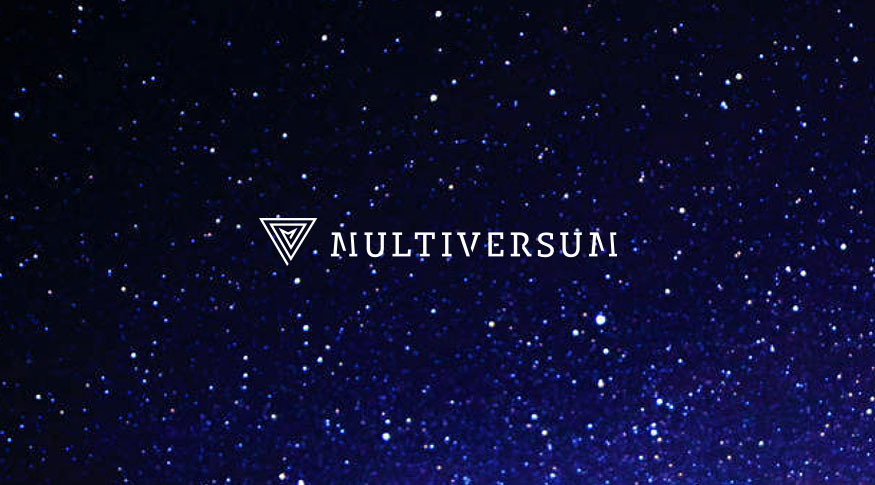Andrea Taini is a man of appetites. As a keen hunter where he lives in Hungary, he will only eat meat that was running free before it met its end. He does not believe in farmed meat. He can cook it too.
It is not surprising, then, that the brain behind such a man can leapfrog over several technological disciplines in a single bound. Taini does not take any prisoners – it is all or nothing with him.
An Italian living in Budapest, Taini was a senior software architect working for the Hungarian Government. His role was to build the complex infrastructure across all government departments from tax, to defense, to health, and transport. In this role, he understands the whole, amorphous topography that encompasses the unwieldy government machine.
About a year and a half ago, Taini began looking seriously at the technology he was working with. He liked some of the attributes but felt it was limited in its current state.
“Blockchain is in a ghetto,” he says. “I looked at blockchain and all I could see was speculation in the digital currencies, and applications solving simple issues with simple data. Great for a currency but not so good for complex, data-led organizations such as governments.”
At the same time, Taini stumbled across an anomaly: it was as if worm holes were opening up in his ambit. This time the neglected state of Liberland came into his purview.
The Free Republic of Liberland is a micronation that claims an uninhabited parcel of disputed land on the Western bank of the Danube, between Croatia and Serbia. Following the cessation of the war between the two neighboring countries, this parcel of land, some seven km2, lay abandoned without a title on either side. Access is via boat from one side and a tidal walk on the other, the tiny semi-island is home to summer dwellers.
In April 2015, a Czech right-libertarian politician and activist Vit Jedickla claimed sovereignty of the pocket of land and declared himself president.
Liberland fascinated Taini. He reached out to Jedickla and offered assistance. The two men became good friends. Today Taini is a citizen of Liberland, one of only a few hundred so honored.
“I see Liberland as a sandbox and a laboratory for my ideas,” says Taini. “Professionally, it is a match in terms of how something, some technology, can totally turn the world on its head. It is like a physical manifestation of blockchain – totally disruptive.”
In his examination of the early blockchain environment, Taini despaired of its use. “How can a chain of blocks render any use to complex organizations such as governments?” he asked. “Most real-world organizations have many data types in different relationships across the infrastructure. The monolithic nature of blockchain is an anathema to complex organizations.”
Taini put his head down and by the middle of 2017 he had solved the issues of early generation blockchains and produced a working prototype. In this solution, the relationships between data are protected by the hash.
“I was the first person to create a relational database inside the blockchain,” he says without any shred of modesty and without boasting. It is presented as fact.
A founder group was set up on Telegram and soon there were 900 Italians interested in taking part.
But the real opportunity has come from big business and large corporates: Taini is now feted across the world by large names wanting to speak with him. Universities, too, are keen to develop partnerships.
“I want to deliver this fourth generation blockchain – the crypto relational database – as a framework. Why should corporates need to understand what is going on under the hood? I want to deliver a framework over which corporates can easily deploy their applications. The structure is so modular and versatile that we can build many different plug-ins over time.”
And so Multiversum was born, the fourth generation blockchain, with vastly superior technology and corporate application.
Multiversum can offer faster and more scalable solutions. It seeks to be more competitive by generating increasingly flexible solutions to meet corporate needs in which complex data structures are organized in tables (as in relational databases).
At the same time, those structures need to be validated and made immutable with blockchain-based techniques, which offer increased traceability and security.
Taini is seeking $65 million to build his project. “I have plans for a team of between 30 and 40 engineers working full time. This is a big project and we have big plans.”
Headquartered in Minsk, Belarus, Taini chose the location because of the country’s 8th Decree announced last December. “Belarus has said exactly what a cryptocurrency is – no other country has been quite so clear. So we have an exact legal framework within which to operate. We do not have to worry about a judge later on down the line deciding what we did or didn’t do was legal. It is very clear in Belarus.
“The tax-free environment is also very appealing naturally. Our project is long-term. We are not building an app, we are building a robust, corporate, fourth generation blockchain. This will take between four and five years.”
If the early interest is anything to go by, it’ll be watch this space for the next month. And then book your summer holiday in Liberland.
